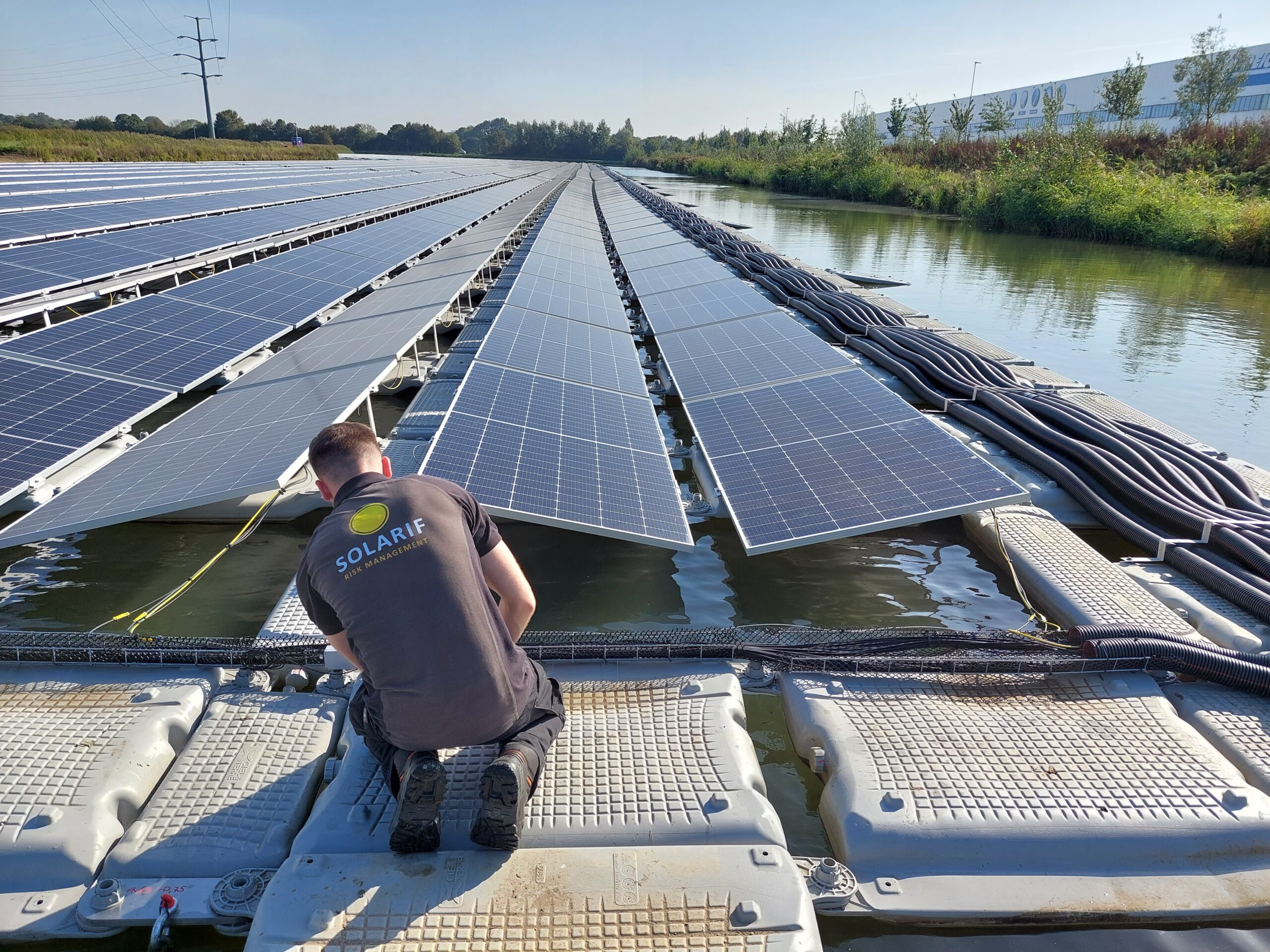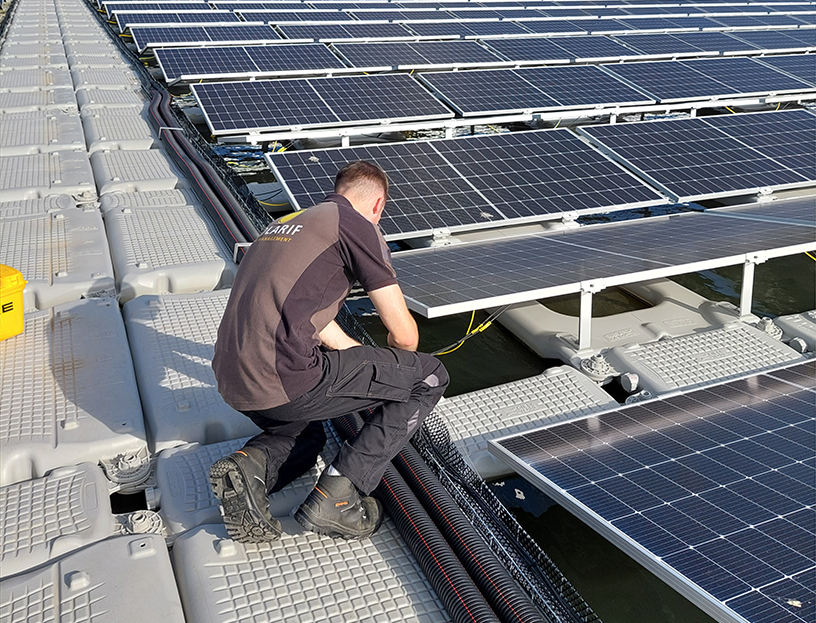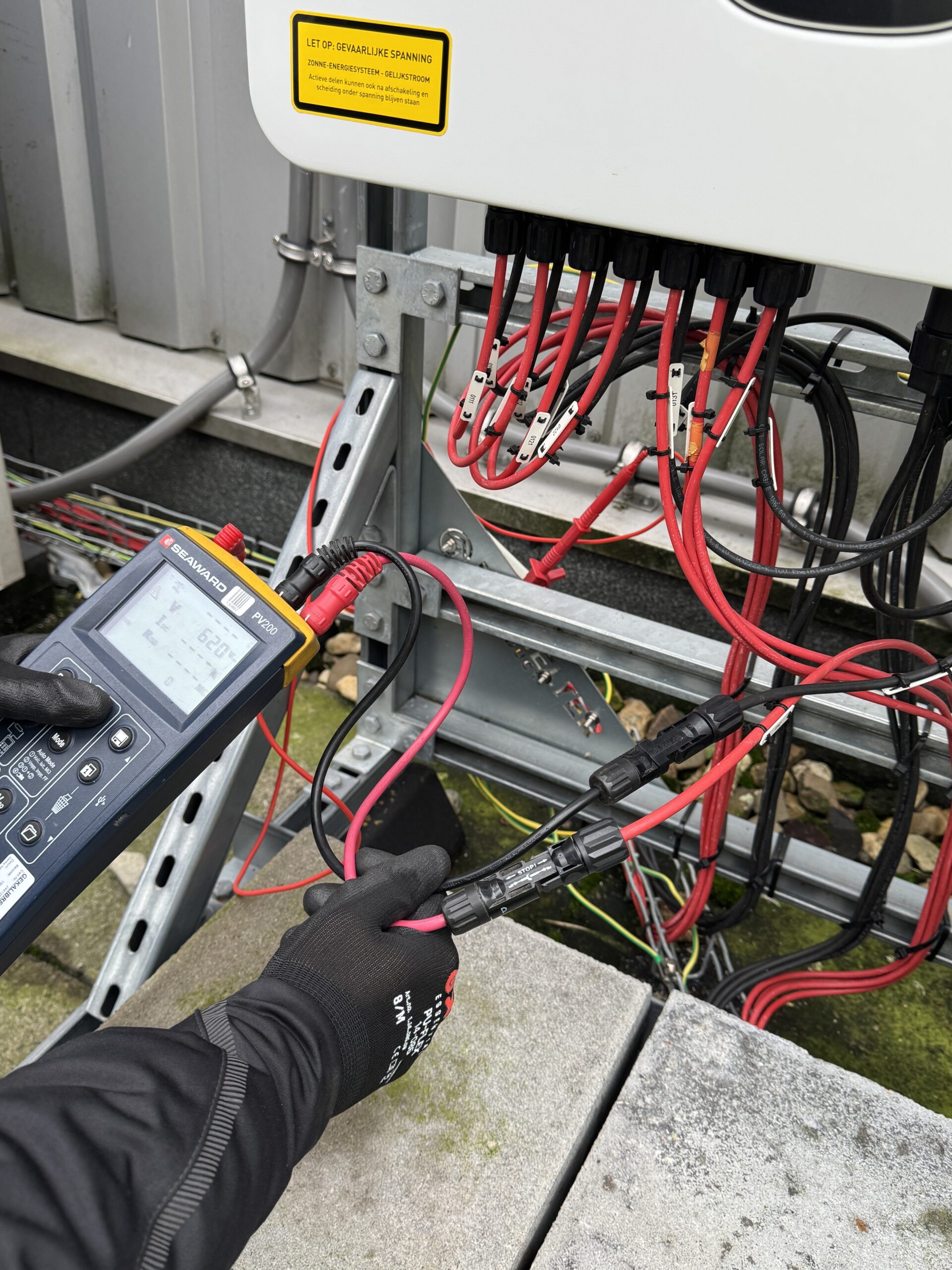Scope 12 and NEN Standards: Essential for Safe and Insurable Solar Installations
Scope 12 inspection protocols work in conjunction with Dutch technical standards NEN 1010 and NEN-EN-IEC 62446-1 to ensure commercial solar installations meet necessary safety and quality requirements. While NEN 1010 establishes fundamental electrical installation standards, NEN-EN-IEC 62446-1 focuses specifically on photovoltaic system documentation and testing. Scope 12 inspection builds upon these standards to create a comprehensive assessment framework specifically developed for the Dutch insurance industry. It’s important to note that Scope 12 inspection is not legally mandatory for solar panel ownership but is required by insurers for commercial solar PV coverage.

Understanding the relationship between Scope 12 and Dutch technical standards
Scope 12 inspection methodology draws heavily from established Dutch technical standards to create a comprehensive assessment framework for solar PV installations. This inspection protocol was specifically developed for the Dutch insurance market to evaluate PV system safety, quality of installation work, and insurability.
NEN 1010 provides the foundational electrical safety requirements that all installations must meet, while NEN-EN-IEC 62446-1 offers more specific guidance for photovoltaic systems. Scope 12 brings these standards together into a structured inspection process that satisfies insurers’ requirements for commercial solar PV installations.
Rather than creating entirely new technical requirements, Scope 12 cleverly integrates existing standards to ensure installations are both technically sound and insurable. This relationship creates a standardised approach that benefits system owners, installers, and insurers by establishing clear expectations for quality and safety.
What is Scope 12 inspection and why is it important?
Scope 12 inspection is a comprehensive quality and safety assessment specifically designed for commercial photovoltaic (PV) systems in the Netherlands. It evaluates whether solar PV installations meet technical standards, are properly installed, and operate safely according to design specifications. SCIOS (Foundation for Certification of Inspection and Maintenance), oversees these inspection protocols.
This inspection protocol was developed in collaboration with insurance companies to verify that solar PV installations meet insurability requirements. Unlike Scope 10 inspections which focus on general electrical fire safety, Scope 12 focuses specifically on photovoltaic system components, connections, and documentation.
The importance of Scope 12 inspection lies in its ability to identify potential safety hazards, performance issues, and insurance risks before they cause problems. While not legally mandatory for having solar panels, Scope 12 inspection is required by insurers who will not cover commercial PV installations without this verification. A positive outcome (without findings) is necessary, and any issues identified must be resolved followed by a re-assessment. If there are no issues the Scope 12 certificate will be provided. After that insurance can be obtained. Both SCIOS and insurance companies recognize these inspections as the essential standard for system safety and quality. You can learn more about Scope 12 inspection requirements and the specific components evaluated during the assessment.

How does NEN 1010 influence Scope 12 requirements?
NEN 1010 serves as the foundational electrical standard that significantly shapes Scope 12 inspection criteria. This Dutch standard provides comprehensive guidelines for electrical installations, including essential safety parameters that all systems must meet.
During a Scope 12 inspection, evaluators verify that the solar PV installation complies with NEN 1010 requirements regarding electrical safety, proper wiring, grounding systems, and protection mechanisms. These elements form the core technical criteria that inspectors assess to ensure the system doesn’t present electrical hazards.
While Scope 12 inspectors don’t perform structural calculations themselves, they do verify that proper documentation exists. This includes checking that calculations for roof loading capacity (including snow and water accumulation) have been properly documented and that electrical systems are installed according to NEN 1010 requirements.
What role does NEN-EN-IEC 62446-1 play in Scope 12 inspections?
NEN-EN-IEC 62446-1 provides specific guidelines for photovoltaic system documentation, commissioning tests, and inspection procedures that directly inform the Scope 12 assessment process. This international standard (adopted in the Netherlands) establishes what documentation should exist for a properly commissioned PV system.
Scope 12 inspections draw heavily from these guidelines when evaluating system documentation, including verification of system design documentation: component datasheets, wiring diagrams, and commissioning test results. The standard’s testing protocols also guide the physical inspection and testing portions of the Scope 12 process.
By incorporating NEN-EN-IEC 62446-1 requirements, Scope 12 inspections ensure that photovoltaic systems not only meet general electrical standards but also comply with PV-specific documentation and testing standards. This comprehensive approach provides insurers with confidence that the system has been properly designed, installed, and documented according to international best practices.
Is Scope 12 inspection mandatory for solar panel owners?
Scope 12 inspection is not legally required for having solar panels in the Netherlands. However, it is practically necessary for insurance purposes for commercial installations. Residential solar PV installations typically do not require Scope 12 inspections.
For commercial solar PV installations, Scope 12 inspection is mandatory if you want to secure insurance coverage. Insurers will not provide coverage for commercial PV systems without a valid Scope 12 certificate with positive results (no findings). If any issues are identified during inspection, these must be resolved before insurance coverage can be secured.
The certification remains valid for five years, after which a periodic inspection must be conducted. In certain cases, insurers may require earlier inspection, particularly for high-value commercial buildings where business interruption due to a solar system-caused fire could result in significant financial losses. Roofs with solar PV installations present a higher risk profile compared to roofs without such installations. Earlier re-inspection also becomes necessary if any modifications are made to the system, such as adding panels, replacing inverters, or reconfiguring electrical systems.

The difference between manufacturer warranties and insurance coverage
It’s important to understand what manufacturer warranties do not cover for solar PV systems. Manufacturers’ warranties typically do not cover consequential losses resulting from product failures. For example, if a panel fails, the warranty might cover the replacement panel, but costs for transport, labor, and removal of the old panel remain the owner’s responsibility. Additionally, if the manufacturer goes bankrupt, the warranty becomes worthless.
Insurance coverage, specifically through inherent defect coverage, provides more comprehensive protection. This coverage works at the project level and remains valid even if the manufacturer no longer exists. Insurance policies can cover consequential damages that result from system failures or defects.
Insurance becomes particularly valuable for large commercial installations where system failures could result in significant financial losses beyond just equipment replacement. However, to obtain this coverage, insurers require proof of system quality and safety, which is where Scope 12 inspection becomes essential.
Meeting insurance requirements involves not just having a valid Scope 12 certification but also implementing proper maintenance protocols and security measures to mitigate risks.
How does Scope 12 inspection affect solar PV insurance?
Scope 12 inspection directly impacts the insurability of commercial solar PV installations. Insurance providers require this certification before offering coverage for solar projects, as it verifies the system meets necessary safety and quality standards.
It’s crucial to understand that having a Scope 12 inspection is a fundamental requirement to obtain coverage at standard premiums. Without this certification, insurers will not provide coverage for commercial systems or may only offer it with significantly higher premiums and limiting conditions.
The inspection report must show positive results with no findings to satisfy insurance requirements. Any issues identified during inspection must be addressed and after that re-inspected before insurance coverage can be secured. This process ensures that insurers have verification that the system doesn’t present undue safety risks that could lead to claims.
Practical considerations for scheduling Scope 12 inspections
When planning for a Scope 12 inspection, several practical factors should be considered. For systems larger than 250kW, inspections typically require a full day or more to complete properly. This extended timeframe is necessary to thoroughly evaluate all components and documentation.
Currently, the market is experiencing significant demand for certified SCIOS Scope 12 inspectors, resulting in wait times of up to several months. This shortage of qualified inspectors makes advance planning essential, particularly for new installations seeking insurance coverage.
The inspection evaluates three critical aspects of solar PV installations: fire safety, technical condition of the installation, and quality of the installation work. All three elements must meet standards to receive certification recognized by both SCIOS and insurance companies.
For systems with battery storage connected to PV installations, additional considerations apply. These systems require assessment under Scope 8 (electrical installations focused on safety for employees), Scope 10 (fire safety inspection for electrical installations), and Scope 12 together to address both fire risks and other safety hazards.

Key takeaways about Scope 12 and technical standards for solar PV installations
Understanding the relationship between Scope 12, NEN 1010, and NEN-EN-IEC 62446-1 is essential for commercial solar PV stakeholders seeking insurance coverage. These interconnected standards create a comprehensive framework for ensuring solar installation quality and safety.
To summarise the key points:
- Scope 12 inspection integrates requirements from NEN 1010 (general electrical), NEN 3140, NEN-EN-IEC 62446-1, NEN-EN-IEC 61439, and SCIOS Technical Document 18
- Scope 12 is exclusively for solar PV installations and cannot be applied to other forms of renewable energy
- While not legally mandated, Scope 12 inspection is required by insurers for commercial PV installation coverage
- Certification remains valid for five years unless system modifications occur or insurers require earlier inspection for high-risk installations
- Current market conditions may result in wait times up to several months for inspection due to certified SCIOS Scope 12 inspector shortages
- For systems that include battery storage, combined assessments involving Scope 8, Scope 10, and Scope 12 are necessary
By ensuring compliance with these standards through proper Scope 12 inspection, commercial solar PV installation owners can secure necessary insurance coverage while maintaining system safety and performance. Solarif has conducted more than 1,000 Scope 12 inspections and has the expertise to help you meet these requirements.
Want to know more about Scope 12 inspections?
Contact us for your required Scope 8, Scope 10 and Scope 12 compliance inspection to ensure your solar PV system meets insurance requirements.
📧 Email: support@solarif.com
☎️ Phone: +31 (0)26 711 5050




